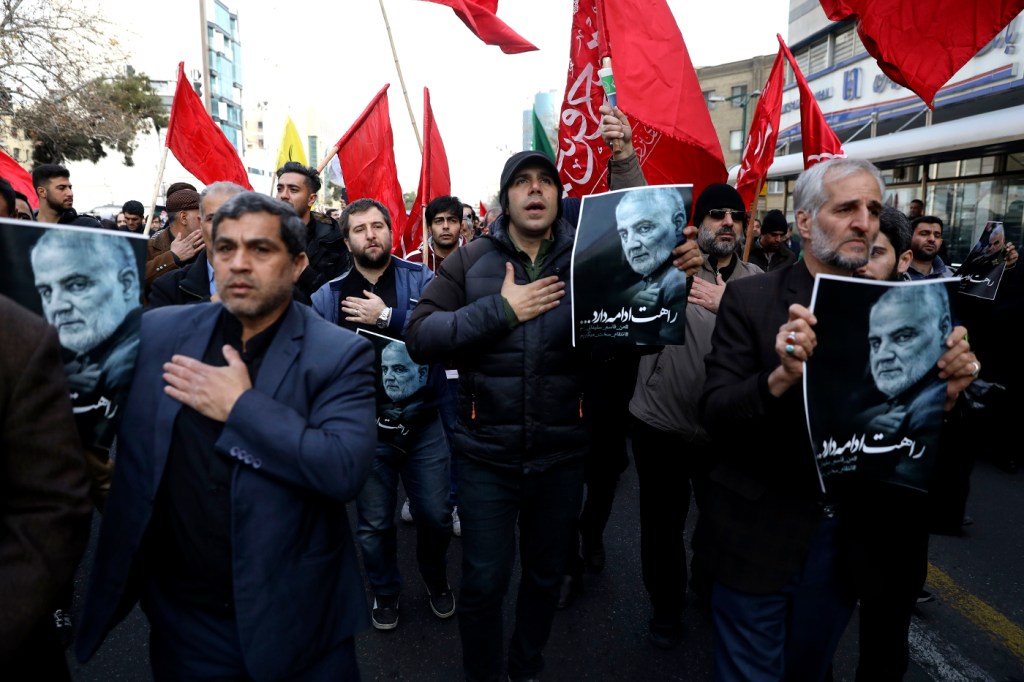Here’s why the drone strike that killed Iranian general Qassem Soleimani could lead to more violence, not less

The United States airstrike that killed Iranian Gen. Qassem Soleimani, who commanded the powerful Quds Force of the Islamic Revolutionary Guards Corps, is likely to draw fierce retaliation from an Iranian paramilitary group that, having lost its leader, may grow even more violent, says Northeastern associate professor Max Abrahms.

Max Abrahms is an associate professor of political science. Photo courtesy of Max Abrahms
Abrahms, who studies terrorism and international security and has written extensively on the subjects, says that there’s no doubt Soleimani was a violent leader, but that he also “understood the [tactical] value of restraint.” Without Soleimani at the helm of the Quds Force, which is a branch of Iran’s Islamic Revolutionary Guards Corps that reaches into regions around the world, Abrahms said he expects the paramilitary group to employ “more violence on a wider range of targets.”
Abrahms says that taking out the leader of a militant group, such as Soleimani, often results in the group “paradoxically becoming even more violent, because lower-level members with even less restraint become empowered.” And, with Iran’s paramilitary network reaching into countries including Iraq, Syria, Lebanon, Afghanistan, and Israel, among others, Abrahms says he expects to see attacks on U.S. military outposts around the world.
Already, the leader of the Iran-backed Hezbollah group in Lebanon said the U.S. military across the region “will pay the price” for killing a top Iranian general, according to The Associated Press.
Iran’s supreme leader, Ayatollah Ali Khamenei, called for mourning, then “forceful revenge” following Soleimani’s death. On Sunday, on the heels of a vote by the Iraq parliament to expel all American soldiers from the country, the Iranian general who replaced Soleimani also vowed revenge.
The U.S. Department of Defense said it carried out the attack because Soleimani was “actively developing plans to attack American diplomats and service members in Iraq and throughout the region,” and alleged that the general had approved an attack on the U.S. embassy in Baghdad on New Year’s Eve.
Abrahms says that often, the leaders of militant groups are seen by many as being particularly violent because they’re at the helm of groups that commit violence.
“However, the reality is that the leaders of most militant groups are more moderate than lower-level members of the organization,” he says. “Even in groups that generate a lot of violence, the leader often acts as a restrainer so that lower-level members don’t use too much violence, or don’t use violence indiscriminately, in a way that would be counterproductive for the organization.”
Abrahms published research in 2017 that shows similar trends with the Taliban in Afghanistan and the Al Aqsa Martyrs’ Brigades in the West Bank—militant groups whose members enacted far more indiscriminate violence after their leaders were killed in targeted attacks.
“That’s what I expect to see happen here,” Abrahms says.
While it’s difficult to quantify restraint—to quantify the attacks that didn’t happen—Abrahms has done wide-ranging research on the roles of leaders within militant groups, studying the amount and kind of violence the group generates, the communications between leaders and operatives within the groups, their various codes of conduct, the response of leaders when operatives commit an attack, and other factors, to determine a reliable indicator of where such leaders stand when it comes to violence.
“The IRGC [Islamic Revolutionary Guards Corps] is a very, very capable militant network, where carrying out an attack costs, relatively, very little money,” Abrahms says. “The fact that the IRGC wasn’t committing nonstop attacks throughout the world is an indicator that its leadership didn’t approve of that.”
Abrahms says that there are potential upsides to having killed Soleimani. Among those potential upsides, the attack took out a “highly competent leader who will be difficult, if not impossible, for Iran to replace,” and sent a message to the international community “that this White House is not going to stand idly by when its embassy is attacked,” Abrahms says.
But such benefits come at a cost, and in this case, Abrahms says there’s “no question that Iran will activate the IRGC to be particularly active in response to the killing of Soleimani.”
For media inquiries, please contact Mike Woeste at m.woeste@northeastern.edu or 617-373-5718.





